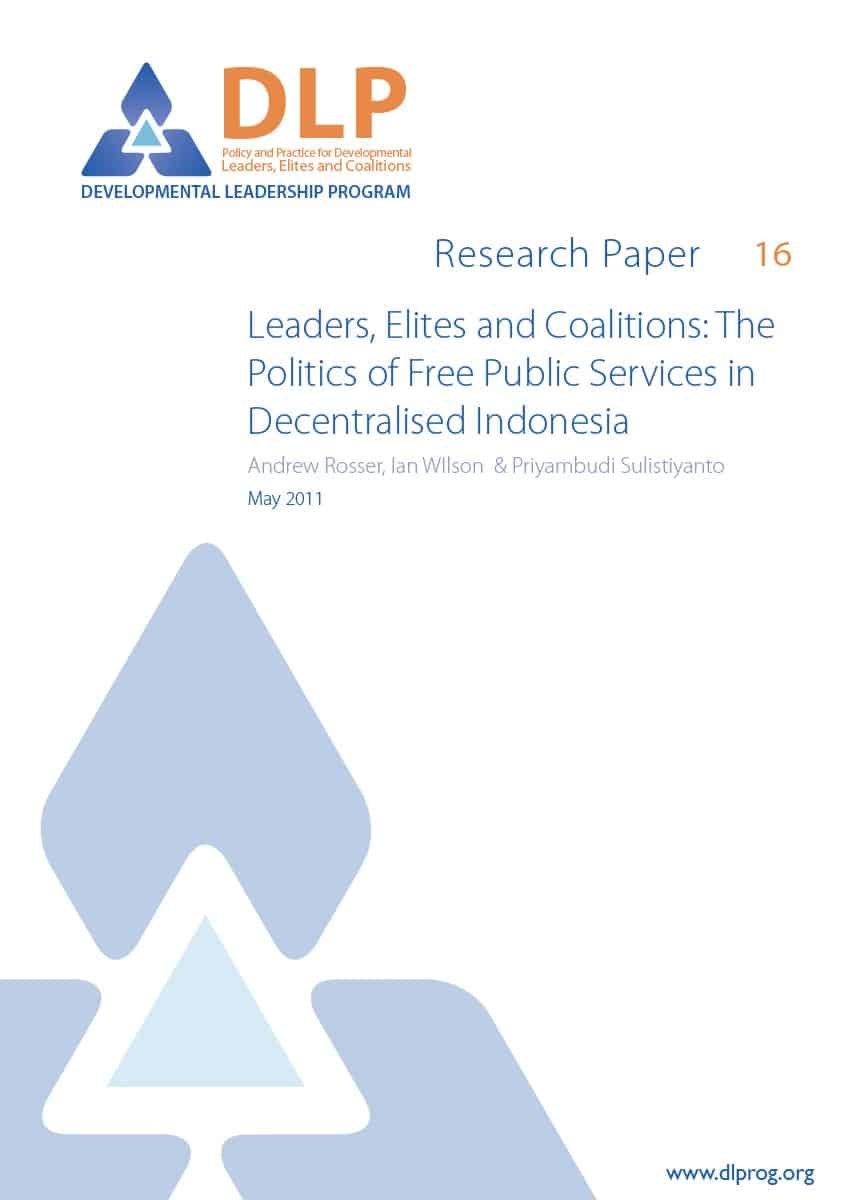Since the implementation of decentralisation in Indonesia in 2001, the response of district governments—which have primary responsibility for health and education policy—has been unco-ordinated. The result is that while many have done little to support the provision of free public services, a small number have adopted well-funded free basic education and health programmes.
The paper explains this variation and assesses the policy implications for donors and other development actors interested in improving Indonesian citizens’ access to basic education and health services.
Key points:
A key determinant of whether user fees are charged has been the maintenance and advancement of political careers. Where district heads have pursued strategies of ‘political entrepreneurship’, developing a popular base among the poor and becoming dependent upon their electoral support, free public services are more likely to be promoted.
This is less likely in districts where political leaders have focused on consolidating patronage networks. This paper suggests that these strategies have in turn reflected the incentives created by a district head’s respective personal networks, alliances, and constituencies.
The paper concludes that donors and other development actors need to find ways of enhancing the scope for political entrepreneurship at the local level. They can support and collaborate with anticorruption institutions and promote awareness of successful instances of political entrepreneurship; they should also use political analysis to decide whether to engage in particular countries or regions.









